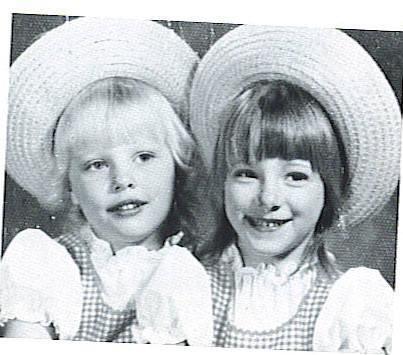“Hey, there’s Dee!” my friend Michelle happily says to me as I’m digging in my bag for my wallet. We’re shopping at the mall when she sees a friend in the shoe department. I glance over but am distracted by handing my credit card to the salesperson.
“She said she was going to be in Nevada for a couple of weeks when I called her last month. Her plans must have changed. I’m going over to say hi,” says Michelle. “Come over when you’re done here. Maybe we can all go to lunch together. Wouldn’t that be great? Dee’s so much fun to be with, remember?” she says over her shoulder as she runs off towards the shoe department.
My purchases take time being bagged and when I turn to look for my friends, they are nowhere to be seen. I decide to wait by the coffee kiosk knowing that that’s where Michelle knows to look for me if we get separated. A half hour later, Michelle finds me. She is alone.
“That wasn’t Dee?” I ask.
“Not the Dee we know,” says my friend.
A lot has been said about women’s friendships—how strong they are, how intimate and comforting it is to have a solid ‘girl-friendship’. Most of what’s said or written is true but, there’s also the fact that some of these strong friendships can end at some point in our lives leaving us hurt and bewildered. It’s almost like breaking up with a man only worse in some way because we pour our hearts into female relationships a little more than into our love relationships.
Michelle and Dee were best friends all through high school and college. I came into the mix as a college frosh, a little lost when navigating my way from one building to another on the Middlebury campus, and a little shy about meeting new people. They took me under their collective wings and we became the female version of the Three Musketeers, all for one and one for all. We saw each other through heartbreaks, insane exams, the illness of Michelle’s mother, and all the things good friends do for each other.
Michelle was serious, Dee was zany, I was somewhere in between the two and we all complemented each other with our personalities.
Over the years we stayed in touch, vowing that we would always have lunch or dinner at least four times a year. That was easy when we all lived in the same area but, even when we moved to separate places for our respective careers, we made a concerted effort to see each other. Then the four times a year dwindled to three, then one, then none.
Michelle and I hadn’t seen Dee for over a year.
When Dee and Michelle moved closer to where I was working in NYC, Michelle thought the older, wiser three musketeers would be just as strong as our college counterparts. It didn’t happen. Calls to Dee were either very brief, (she was always busy with work or some social activity or “had to go”), or, worse, calls were not returned. “She’s just so busy,” Michelle always said, forgiving her best friend.
The truth was that Dee had become someone else by choice. When Michelle went to see her in the store, their conversation wasn’t one that she expected. Dee, who now wanted to be called Danielle, told Michelle that she had a different life now and basically wasn’t interested in what was past. She had changed and created a life that she loved and what was interesting to her ten years ago, was no longer valid for her. What she didn’t say was that the friendship that we had all shared didn’t fit into her new life. Michelle was deeply hurt.
The sad truth is that some friendships, even undying ones, don’t always last as we get older. We do change. Relationships that worked in the past may not work for us later on. If a relationship isn’t satisfying or adding to your life, then it no longer fits your needs. This sounds clinical and harsh but it is the truth.
Then there is a desire to move on from the past. You might not see the past the same way your friend does. What she thought was wonderful you may remember as not so pleasant. Moving away from the past is your choice and it is not a bad one.
In the book Stand By Me, Stephen King writes, “I never had any friends later on like the ones I had when I was twelve. Jesus, does anyone?”
At twelve, at fifteen, at twenty, the same holds true. As hard as it is to accept the end of a friendship, moving on, and break-ups, are a part of life. Maybe it’s the part that allows us to grow.


